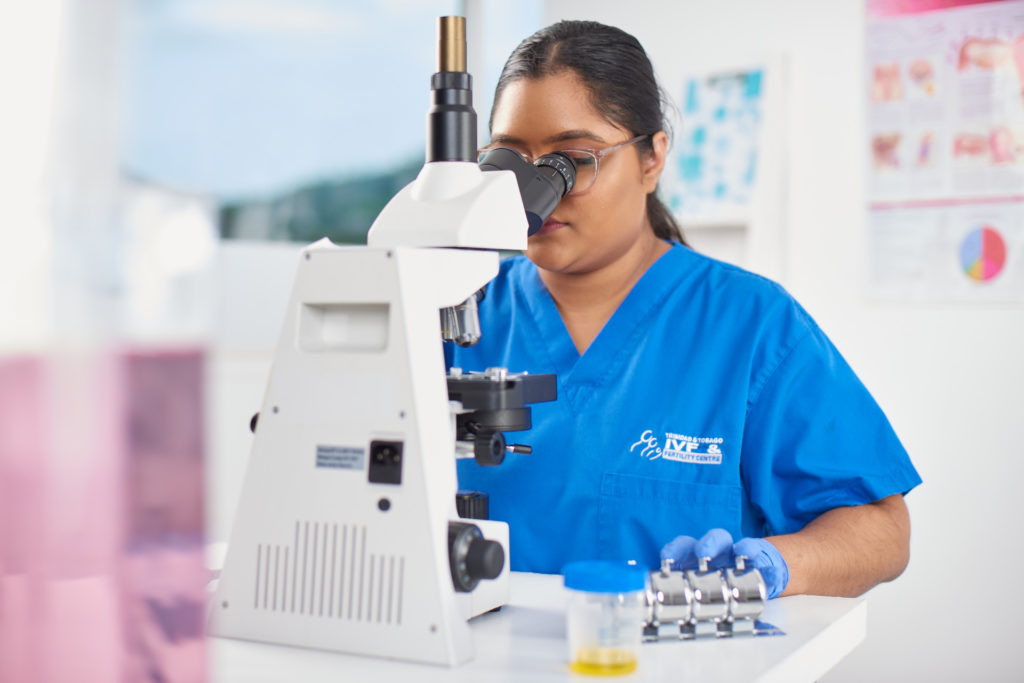
As wonderfully competent as most cancer professionals are, sometimes they forget the issue of protecting a man’s future fertility (sperm banking) when presenting him with his treatment options.
Let’s talk about when the dreaded diagnosis of cancer suddenly arrives. A man’s life is quite naturally thrown into turmoil. Medical decisions have to be made fast. There is usually only one treatment option to beat cancer and this treatment option may well damage his ability to have children in the future.
That’s a big deal. And because not many of us are very good at thinking ahead or planning for the future in the face of grave news, education about what cancer does to a man’s fertility and the ways he can protect it is a good step in raising awareness about male fertility preservation.
What is Fertility Preservation?
Cancer is common and four in every ten of us will face a diagnosis of cancer during our lifetime. For most of us, cancer will be diagnosed once we are over 60. At this age, future fertility is not a concern.
But for younger men and women, cancer is different. Their cancers often require more aggressive treatment. Unfortunately, the treatment regimens used will cause temporary infertility for many patients and permanent infertility for some. This is why when a person with cancer wants to have children after their treatment ends, some planning is needed. The cancer patient has to think about fertility preservation.
Fertility preservation covers a range of fertility treatments that protect or freeze eggs, sperm, or reproductive tissue so that a person can use them to have children in the future. Egg freezing and sperm freezing (also called sperm banking) are the ones most people have heard of. Sometimes medication can be used to protect eggs. Newer techniques now also allow ovarian tissue freezing in some cases.
Cancer and Sperm Banking
Many different types of cancer occur in young men. The treatment will vary according to the cancer type and severity. Not all cancer treatments are going to cause infertility.
Testicular cancer is one of the top three cancers for men in their 20s and 30s. Treatment for testicular cancer usually includes removal of one testicle followed by chemotherapy. These treatments may cause infertility. In some cases this infertility lasts just for a short period of time before sperm production recovers. Often a sperm count done a few years after the cancer treatment shows that sperm production is normal. However, for other men the infertility lasts for many years or is permanent.
Without fertility preservation, if sperm production never returns, the only ways for the man to have children are adoption or sperm donation treatment. Sperm banking changes this by freezing one or more sperm samples before any cancer treatment begins. That frozen sperm can be used in the future to have a family.
How is Sperm Banking done?
Sperm freezing is offered in most fertility clinics. It’s a simple process. Over the course of one or more appointments, sperm are collected, washed and frozen. The sperm is usually produced by masturbating and the ejaculated semen is collected in a sterile pot. The fertility clinic lab then checks the sample for sperm that are alive, washes the sperm and freezes it in liquid nitrogen.
For guys with no sperm when they ejaculate or for teenagers who cannot produce a sample by masturbation, there is still hope. Sperm can also be found in testicular tissue, collected via surgery and then frozen. Right now, for teenagers sperm can only be frozen once they have started puberty. There are no standard options yet for boys before puberty has started.
Sperm banking gives both men and boys a chance to have their genetic children in the future. When they are ready, years in the future, the sperm is available for assisted reproductive treatments. The type of treatment needed to get a baby with frozen sperm depends on the female partner and the quality of the frozen sperm. Different types of fertility treatments such as insemination (IUI) or IVF are used.
Who can Have Sperm Freezing?
Any man or boy who has not yet started chemotherapy or radiotherapy can choose to freeze their sperm. There are two requirements to be able to freeze sperm.
First, the testicles must be producing sperm. Sperm banking is not possible if sperm production has already stopped. It is also not possible if sperm production has not started, i.e. for boys who have not started puberty.
The second requirement is that the patient does not have any infectious conditions like HIV, Hepatitis or syphilis.
Is a Low Sperm Count Linked with Cancer?
While cancer treatments can cause infertility, sometimes there is already a problem with the sperm before treatment starts. Research has shown that boys and men with cancer are more likely to have a low sperm count, even before any cancer treatment has begun. It is common for men coming to the fertility centre for sperm banking to find out they have a low sperm count.
We Need to Talk More About Fertility Preservation!
“The comfort of knowing I had these options really helped me when deciding whether to go ahead with chemotherapy” Andrew, testicular cancer patient.
Discussing the possibility of fertility preservation is becoming more common between doctors and their young adult cancer patients. Sadly though, many patients still do not hear about the option. If you or someone you know are facing a cancer diagnosis, ask your doctor about fertility preservation! Often there will be options available to you.
Fertility clinics usually offer an urgent service for cancer patients. A good fertility centre will provide quick assessments, costings and options, and will fast-track the sperm banking process. That’s important, because when you have cancer fertility preservation can mean the difference between having a child in the future, or not.


